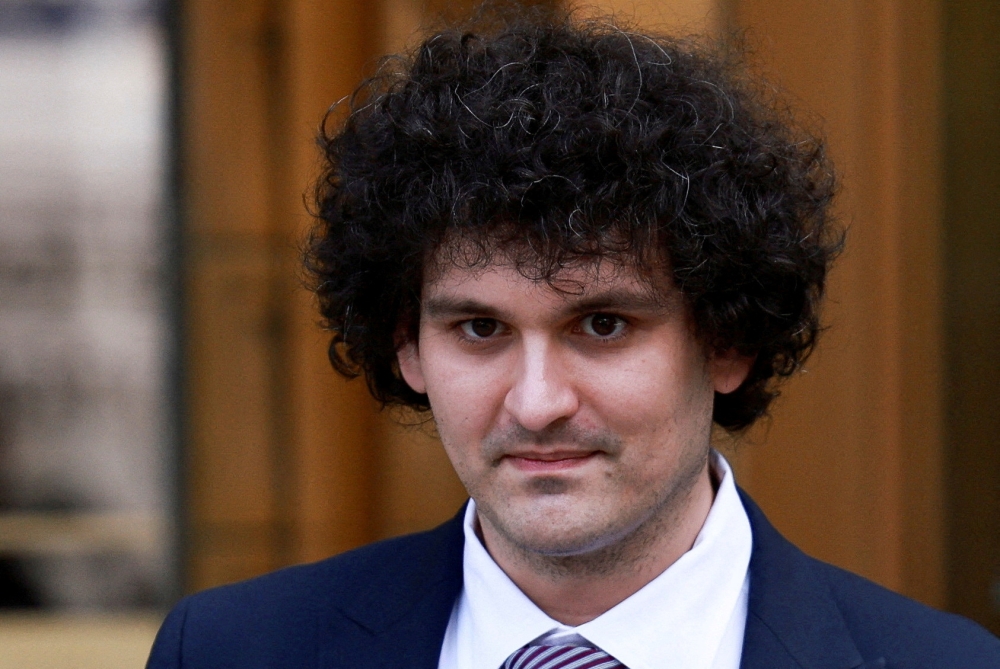NOVEMBER 23 ― I confess that before last November I’d never even heard of Sam Bankman-Fried (SBF from here on).
Yet after the tremendous fiasco of the collapse of his crypto empire, and especially throughout his trial, my social media feeds couldn't seem to get enough of him.
Still, I wasn’t thinking much about this whiz kid with the strange hairdo who had a gift for raining money... until I happened to rewatch that brilliant movie, The Big Short, based on a book by Michael Lewis and I went, “Hey, didn’t Lewis also write something on SBF?”
Which led me to Going Infinite: The Rise and Fall of a New Tycoon, a biography of SBF who, although at one time was worth north of US$26 billion (RM121 billion), may not be able to afford even a pizza today.
After the first two chapters, it was already clear SBF is not your average guy.
He plays video games while doing interviews on “live” TV during which he’d repeat “Yup” a hundred times (often without having any idea what’s being said); often says yes to appointments only to cancel them at the last minute; his initial yes was simply “assigning non-zero probabilities to the proposed use of his time”; fidgets non-stop compulsively, his knee often “jackhammers at four beats per second.”
He also seems to be repulsed by books, by childhood, by even the modicum of authority or “social obligation”, by religion, by politics, by art, by English classes, by abstract debates or even concepts (“The difference between art and entertainment is a bullshit distinction dreamed up by academics justifying the existence of their jobs.”)
Needless to say, SBF is hardly a social butterfly but instead glories in his self-isolation.
Not unlike Elon Musk, although he generally despised schooling he excelled in the subjects he enjoyed and kept pushing his boundaries when it came to Math and puzzle games, etc.
Other noteworthy things from the book:
1. His first employer, Jane Street Capital, evaluates new applicants by making them solve puzzles and play complicated games over (and over) again.
Apparently they’re looking for people who are good at guess-timating and making bets on probabilities and uncertainties i.e. people with the mind of good traders?
This sort of thing is what SBF became an expert at, that ability to master puzzling things which involved bets, probabilities and money. “In the presence of strange new games, the relevant thought processes just seemed to come to Sam.”
2. How did SBF make his immense wealth?
This part is practically French to me as it involves bitcoin trading terminology. Something to do with creating bitcoin exchanges (which profit from trades involving extremely minute differences in pricing and/or value) which, somehow, exponentially attracted loads of investors.
The amazing thing is SBF couldn’t entirely explain bitcoin (in fact, who can?), yet he made billions by trading it and/or creating exchanges where bitcoin could be traded.
3. SBF’s management style is, to my mind, horrendous. An employee said, “He was demanding and expecting everyone to work 18-hour days and give up anything like a normal life, while he would not show up for meetings, not shower for weeks, have a mess all around him with old food everywhere, and fall asleep at his desk.
“He did zero management and thought that if people had any questions, they should just ask him. Then in his one-on-one with people, he’d play video games.”
Lewis devotes the last bit of the book to the meltdown, to how everyone was in shock, to how SBF was seen walking round and round his Bahamas office, to how to account for a whopping missing US$6 billion to how the law soon showed up, his arrest, etc.

Ultimately, I think SBF lost everything because he took too many things for granted. He was juggling too many balls in the air, and he lived in a way where he believed he was immune to rules.
Lewis’ book doesn’t make him come across as some scheming criminal. I believe SBF is someone who would take US$10 million from an investor and use it for his purposes (without telling anyone) simply because he’s been ignoring rules and convention all his life and, at least up until last November, was able to make so much money to cover up these actions it hardly registered as problematic.
In the final analysis, I think SBF was behaving in a manner better described as stupid than illegal but, as per a quote in The Big Short, “Tell me the difference between stupid and illegal and I’ll have my wife’s brother arrested.”
* This is the personal opinion of the columnist.






















